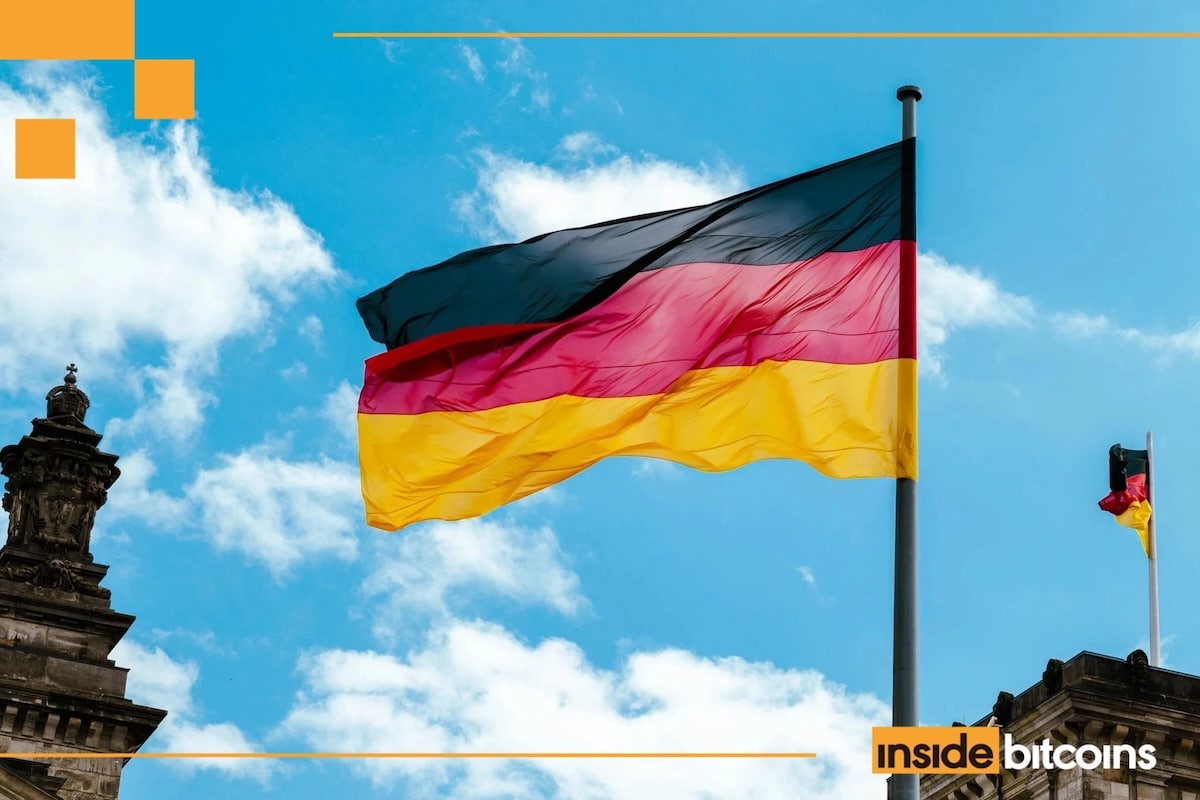Join Our Telegram channel to stay up to date on breaking news coverage
Germany’s gambling industry stands at a critical juncture as regulators prepare to address fundamental flaws in the country’s Interstate Treaty on Gambling (GlüStV 2021) that have created widespread confusion and undermined enforcement efforts since its implementation.
The highly anticipated update to the treaty, expected before 2026, promises to resolve persistent issues around deposit limits, IP blocking enforcement, and the crucial definition of “affordability” that have severely hampered the legal market’s ability to compete against illegal operators.
This comprehensive regulatory overhaul comes at a time when Germany’s licensed gambling market is struggling with a channelization rate below 40% for online slots, meaning the majority of German gambling activity continues to occur on unlicensed platforms. The current framework’s restrictive nature has created an environment where illegal operators offer “9.2 times more products than those on the legal market,” according to industry estimates, highlighting the urgent need for reform.
Key Takeaways
- Regulatory Update Timeline: Germany’s Interstate Treaty on Gambling is expected to undergo comprehensive revision before 2026, addressing critical enforcement and compliance issues.
- Affordability Definition Crisis: The lack of concrete definition for “economic capacity” has created legal uncertainty for operators and inconsistent application of deposit limit increases.
- IP Blocking Powers Curtailed: A landmark Federal Administrative Court ruling in March 2025 severely limited the GGL’s authority to implement IP blocking against telecommunications providers.
- Market Channelization Failure: Legal online slot operators capture only 20-40% of German gambling activity, with the majority flowing to unlicensed platforms.
- Tax Revenue Decline: Online casino tax revenue dropped 16% in 2024, demonstrating the counterproductive nature of overly restrictive regulations.
- Enforcement Gaps: Current legal framework inadequacies have forced regulators to rely on more resource-intensive host-based blocking methods.
- Industry Pressure: The German Online Casino Association (DOCV) advocates for replacing stake taxes with gross gambling revenue taxes and reconsidering restrictive stake limits.
Current Regulatory Framework Challenges
Germany’s current regulatory structure mandates a strict €1,000 monthly deposit limit across all licensed platforms, monitored through the LUGAS (Länderübergreifendes Glücksspielaufsichtssystem) system. While this baseline appears straightforward, the framework’s complexity emerges in its provisions for increased limits based on demonstrated “economic capacity.”
Players can theoretically increase their monthly limits to €10,000 or even €30,000 by proving their financial capability, but the process has become a source of significant confusion for both operators and regulators. Simon Priglinger-Simader, Vice President of the German Online Casino Association (DOCV), highlighted the core problem during a recent industry webinar: “The aim is to get a sustainable model that provides a long-term plan and security [for operators]. The latest update we got from the supervisory board meeting in May was that the states are now looking to find the definition for the term affordability.”
The absence of clear regulatory guidance has created several operational challenges:
- Inconsistent Application: Different operators interpret “economic capacity” requirements differently, leading to varied approval processes for the same customer profiles
- Legal Uncertainty: Operators face compliance risks when approving limit increases without clear regulatory standards
- Administrative Burden: The current verification process requires extensive documentation and manual review, creating delays and frustration for both operators and players
- Competitive Disadvantage: Unclear processes drive players toward unlicensed or crypto operators with no such restrictions
Michelle Hembury of Melchers Law emphasized the regulatory gap: “The term ‘economic capacity’ has not been defined in any regulatory document, not even the licences, not the directive and not the Interstate Treaty.” This definitional void has left operators operating in a compliance gray area that undermines both legal certainty and consumer protection objectives.
Enforcement Powers Severely Compromised
The German gambling regulator GGL (Gemeinsame Glücksspielbehörde der Länder) suffered a significant setback in March 2025 when the Federal Administrative Court (BVerwG) issued a landmark ruling that fundamentally curtailed the regulator’s IP blocking capabilities. The court’s decision in case 8 C 3.24 determined that the current Interstate Treaty lacks sufficient legal basis for IP blocking orders against telecommunications service providers.
Legal Framework Inadequacies
The court ruling confirmed that Article 9(1) of GlüStV 2021 applies only to “responsible service providers” as defined by the now-obsolete German Telemedia Act (TMG), which has been superseded by the EU’s Digital Services Act (DSA). This legal obsolescence has rendered the GGL’s attempts to enforce IP blocking against telecommunications resellers legally invalid.
The implications of this ruling extend beyond technical enforcement mechanisms:
- Reduced Deterrent Effect: Without IP-level blocking capabilities, illegal operators face fewer technical barriers to accessing German players
- Increased Enforcement Costs: The GGL must now rely on more resource-intensive host-based blocking methods
- Regulatory Authority Erosion: The ruling undermines the GGL’s perceived enforcement authority and may encourage non-compliance
- Consumer Protection Gaps: Limited enforcement capabilities reduce the regulator’s ability to protect consumers from unlicensed operators
Despite these limitations, the GGL has maintained its enforcement strategy by focusing on host providers rather than access-level interventions. The regulator has successfully blocked over 930 domains associated with unlicensed gambling, but this approach requires significantly more time and resources than comprehensive IP blocking would provide.
Market Impact and Channelization Crisis
Legal Market Competitiveness Issues
The restrictive nature of Germany’s current regulatory framework has severely undermined the legal market’s ability to compete with illegal operators. The combination of multiple restrictive measures has created a cumulative burden that drives players away from licensed platforms:
- Stake and Product Limitations: The €1 maximum bet limit on online slots, combined with reduced return-to-player (RTP) rates necessitated by the 5.3% turnover tax, has created an inherently less attractive product offering for players. Licensed platforms typically cap RTP rates at 92-93% to maintain profitability, significantly below the industry average of 95%.
- Monthly Deposit Restrictions: While intended as consumer protection measures, the €1,000 monthly limit—combined with unclear processes for increases—has proven too restrictive for many recreational players who would otherwise prefer licensed platforms.
- Tax-Driven Product Degradation: The current tax structure forces operators to offer inferior gaming experiences compared to unlicensed alternatives, creating a perverse incentive structure where compliance results in reduced competitiveness.
These cumulative restrictions have resulted in a channelization rate for online slots estimated at below 40%, meaning the majority of German gambling activity occurs on unlicensed platforms. The DOCV estimates that licensed providers account for only 20-40% of online slot activity in Germany—a figure that represents a policy failure by any measure.
Financial and Fiscal Implications
The current regulatory approach has created negative fiscal outcomes that undermine the government’s revenue objectives:
- Tax Revenue Decline: Online casino tax revenue dropped by 16% in 2024, following another decline in 2023. This demonstrates that overly restrictive regulations can be counterproductive even from a purely fiscal perspective.
- Operator Profitability Pressure: The current tax structure has forced operators to make trade-offs between profitability and player experience, with many choosing to reduce marketing spend and game variety rather than operate at unsustainable margins.
- Economic Leakage: The estimated €1 billion in annual gambling activity that flows to illegal operators represents not just lost tax revenue but also missed opportunities for regulated market development and consumer protection.
“The new government needs money,” noted one industry expert, highlighting how addressing illegal gambling could provide significant fiscal benefits while improving consumer protection outcomes.
The Push for Comprehensive Regulatory Reform
Recognizing the urgency of addressing these fundamental issues, a specialized working group was formed in 2025 to tackle the critical question of defining “affordability” in the German gambling context. This working group represents collaboration between federal and state authorities, industry representatives, and consumer protection advocates.
The working group’s mandate includes:
- Developing Concrete Affordability Criteria: Creating objective standards that operators can implement consistently
- Streamlining Verification Processes: Reducing administrative burden while maintaining appropriate consumer protections
- Harmonizing State Interpretations: Ensuring consistent application across different German states
- Balancing Competing Interests: Addressing consumer protection concerns while maintaining market competitiveness
Clarification on affordability definitions is expected around Q3 or Q4 2025, according to industry sources. This timeline creates urgency for stakeholders to contribute meaningfully to the process while the regulatory framework remains malleable.
Enforcement Enhancement Proposals
The GGL has been actively advocating for legislative amendments to address the enforcement gaps revealed by the March 2025 court ruling. The regulator’s proposals include:
Expanded IP Blocking Authority: Legislation specifically addressing telecommunications providers and internet service providers to circumvent the legal obstacles identified by the Federal Administrative Court.
Streamlined Enforcement Procedures: Simplified administrative processes for blocking unlicensed operators, potentially modeled on successful payment blocking mechanisms.
Enhanced Advertising Restrictions: Stronger powers to combat illegal gambling advertising, particularly targeting social media and affiliate marketing channels.
Cross-Border Cooperation Mechanisms: Improved coordination with other EU regulators to address operators that target German players from other jurisdictions.
Michelle Hembury believes the updated Interstate Treaty will include provisions designed to circumvent current legal obstacles: “I assume GGL will have to kind of put their heads together with the Administrative Board and all of the representatives of the federal states and amend the Interstate Treaty.”
Expected Treaty Revisions and Industry Impact
The updated Interstate Treaty is expected to include comprehensive provisions that grant the GGL stronger legal authority for enforcement actions. These changes may include:
Modernized IP Blocking Framework: Legislation specifically designed to address current legal gaps while complying with EU digital services regulations.
Expanded Regulatory Scope: Clearer authority over emerging gambling formats and technologies that weren’t adequately addressed in the original treaty.
Streamlined Enforcement Procedures: Simplified administrative processes that reduce the time and resources required for effective enforcement.
International Cooperation Protocols: Enhanced mechanisms for coordinating with other EU regulators and enforcement agencies.
Affordability and Consumer Protection Reform
Industry experts anticipate that the updated treaty will provide concrete definitions and procedures for assessing player affordability:
Objective Assessment Criteria: Clear standards for evaluating “economic capacity” that operators can implement consistently.
Standardized Verification Processes: Streamlined procedures that reduce administrative burden while maintaining appropriate safeguards.
Technology Integration: Potential for automated systems that can assess affordability more efficiently than current manual processes.
Consumer Choice Balance: Framework that protects vulnerable players while allowing responsible recreational gambling at appropriate levels.
Market Competitiveness Adjustments
While maintaining player protection as a priority, the updated treaty may include strategic adjustments to address the most problematic competitive disadvantages:
Tax Structure Optimization: Potential replacement of the current stake tax on virtual slots with a gross gambling revenue (GGR) tax, which would allow operators to offer more competitive RTP rates.
Stake Limit Reconsideration: Possible adjustment of the €1 maximum stake limit, which has been identified as a primary driver of player migration to unlicensed platforms.
Product Offering Flexibility: Enhanced ability for operators to offer competitive gaming experiences while maintaining appropriate consumer protections.
Marketing Restriction Review: Balanced approach to advertising restrictions that prevents harmful marketing while allowing licensed operators to compete effectively for player attention.
Timeline and Implementation Considerations
The interim evaluation of the Interstate Treaty launched in December 2023 is expected to inform comprehensive recommendations that will be adopted by federal states during the amendment process. Current timelines indicate several critical milestones:
Q3-Q4 2025: Working group conclusions on affordability definitions and implementation procedures.
End of 2025: Expiration of current guidelines, creating urgency for regulatory clarity.
Before 2026: Expected adoption of updated Interstate Treaty provisions.
2026: Comprehensive treaty review representing the first major revision since 2021 implementation.
Simon Priglinger-Simader emphasized the timeline pressure: “Current guidelines will not be applicable from next year and therefore an update is expected before 2026.”
Implementation Challenges
The successful implementation of treaty updates will require coordination across multiple levels of German government and industry:
Federal-State Coordination: Ensuring consistent interpretation and implementation across different German states.
Industry Adaptation: Providing adequate time for operators to adjust systems and processes to new requirements.
Technology Integration: Implementing new assessment and monitoring systems required by updated regulations.
Consumer Communication: Educating players about changes to deposit limit procedures and assessment criteria.
International Context and Best Practices
Germany’s regulatory challenges reflect broader European struggles to balance consumer protection with market effectiveness. Other EU jurisdictions have faced similar issues:
Sweden: Has undergone multiple revisions to its gambling regulations to address unintended consequences of overly restrictive measures.
Netherlands: Implemented a more flexible approach to deposit limits while maintaining strong consumer protections.
United Kingdom: Continues to refine its approach to affordability assessments while avoiding overly burdensome requirements.
France: Has demonstrated that properly implemented regulatory frameworks can achieve high channelization rates while protecting consumers.
These international experiences provide valuable lessons for German policymakers considering regulatory adjustments.
Industry Best Practices
Successful gambling regulation typically incorporates several key principles that Germany’s revised treaty may adopt:
Risk-Based Approach: Tailoring consumer protection measures to individual risk profiles rather than applying blanket restrictions.
Technology Integration: Leveraging automated systems to implement consumer protections more efficiently and consistently.
Stakeholder Engagement: Involving industry, consumer advocates, and academic experts in regulatory development processes.
Continuous Assessment: Building in mechanisms for ongoing evaluation and adjustment of regulatory measures.
Proportional Response: Ensuring that consumer protection measures are proportionate to identified risks and don’t inadvertently drive players to unlicensed alternatives.
Conclusion: Toward a Balanced Regulatory Framework
Germany’s upcoming Interstate Treaty update represents a critical opportunity to address fundamental flaws that have undermined both consumer protection and market integrity since 2021. The current situation, where the majority of German gambling activity occurs on unlicensed platforms despite the existence of a regulated market, clearly demonstrates the need for comprehensive reform.
By providing concrete definitions of affordability, strengthening enforcement capabilities against illegal operators, and strategically adjusting the most problematic restrictive measures, German regulators have the opportunity to create a more balanced approach that effectively channels players back to the regulated market while maintaining appropriate consumer protections.
The success of these reforms will be measured not just by their ability to improve channelization rates, but by their effectiveness in achieving the original policy objectives: minimizing illegal gambling activities, protecting vulnerable consumers, and creating a sustainable legal gambling sector that can effectively compete with black market alternatives.
As one industry expert observed, the estimated €1 billion in annual gambling activity currently flowing to illegal operators represents both a significant fiscal opportunity and a consumer protection failure. Addressing these issues through thoughtful regulatory reform could provide substantial benefits to government revenues, industry sustainability, and consumer welfare.
The coming months will be critical as stakeholders work to shape the updated treaty provisions. The outcome will largely determine whether Germany can transform its current regulatory struggles into a model for effective gambling regulation that other European jurisdictions might emulate, or whether the country will continue to grapple with the unintended consequences of well-intentioned but poorly implemented consumer protection measures.
References
- iGaming Business. (2025). “Germany Interstate Treaty update to address deposit limits struggle.”
- Bet-at-home. (2025). “What is LUGAS? Why do I have to set a deposit limit?”
- NEXT.io. (2025). “Germany’s €1,000 monthly deposit limit continues to create challenges.”
- Gambling News. (2025). “Germany Faces Crucial Moment in Gambling Regulation Ahead of 2026 Evaluation.”
Join Our Telegram channel to stay up to date on breaking news coverage


